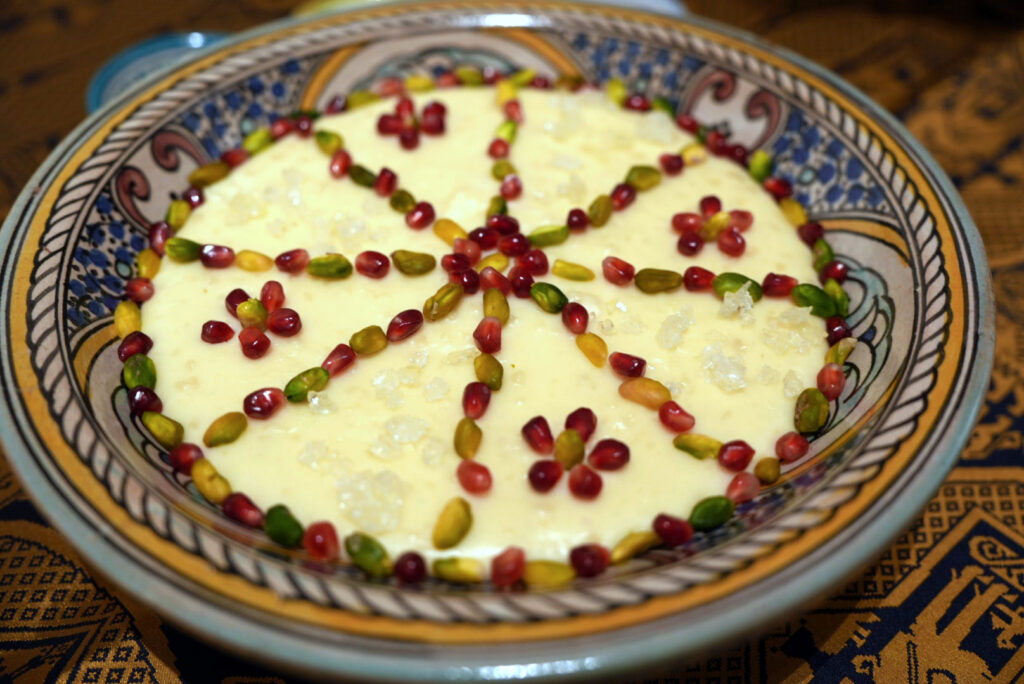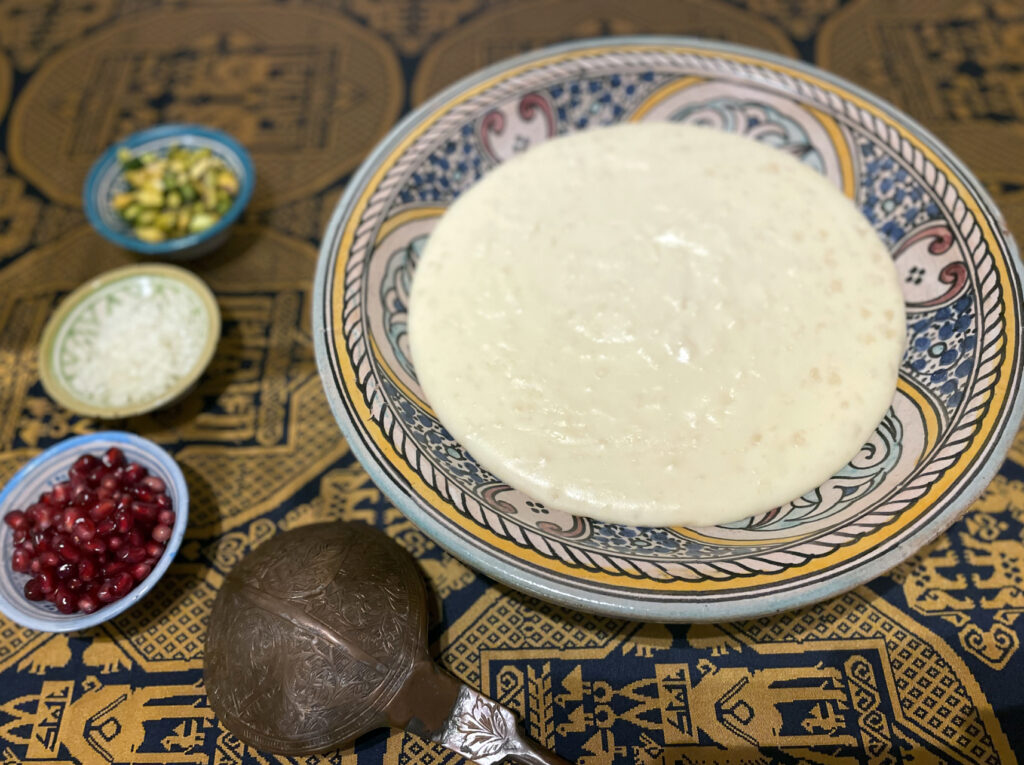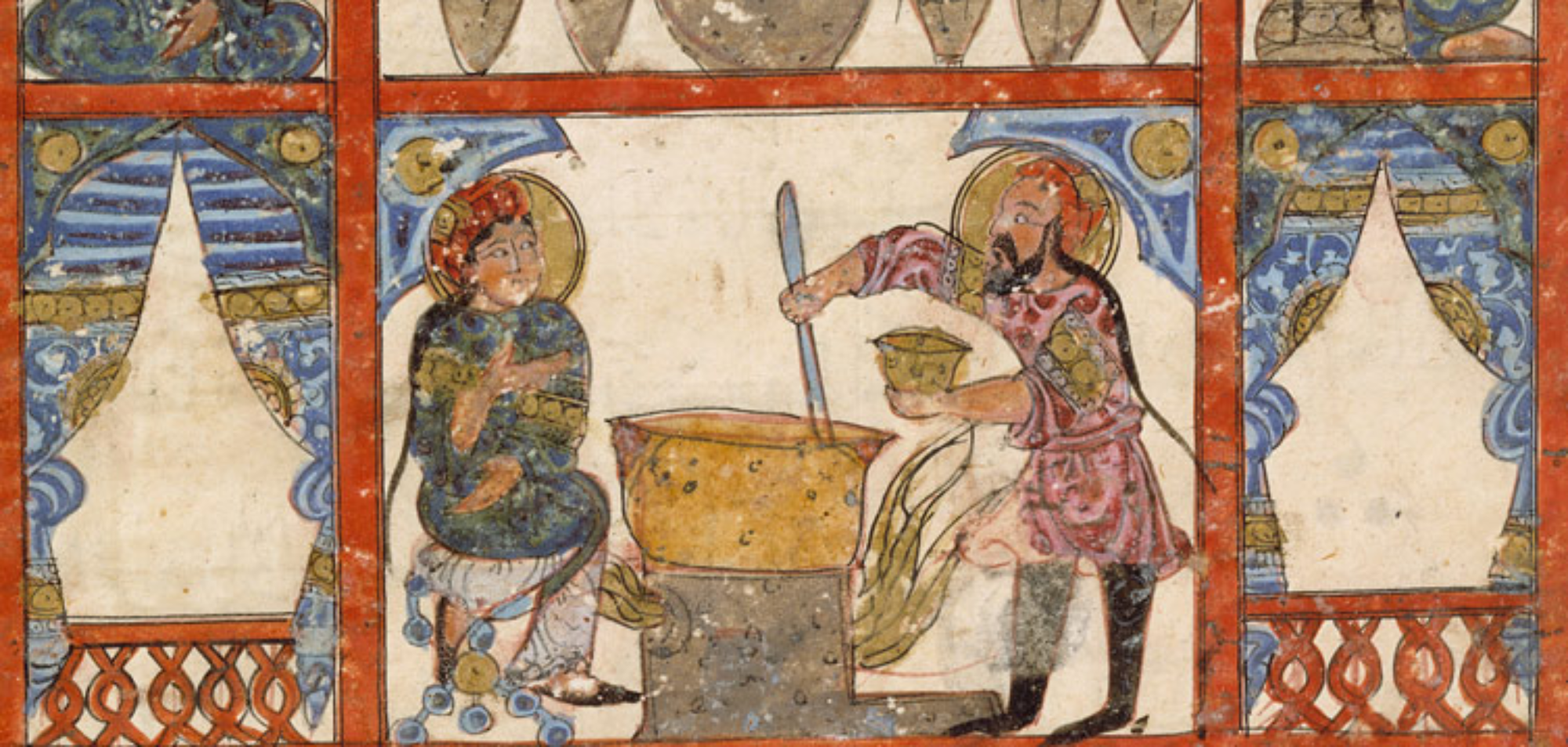This recipe is named after its alleged originator, the famous Abbasid caliph al-Ma’mūn (813–33), a patron of the arts and sciences during whose reign many of the Greek scientific works were translated into Arabic. It must have been a very popular dish as recipes can be found in 13th-century Syrian and 15th-century Egyptian cookery books. It is a kind of rice pudding, which could be made with or without meat, as it is here. The process is pretty straightforward; after pounding rice it is boiled in milk, sugar, and sheep’s tail fat (if you don’t have any to hand, just use ghee instead) to a light pudding. It is served with a garnishing of pistachios, pomegranate seeds, and rock candy.


